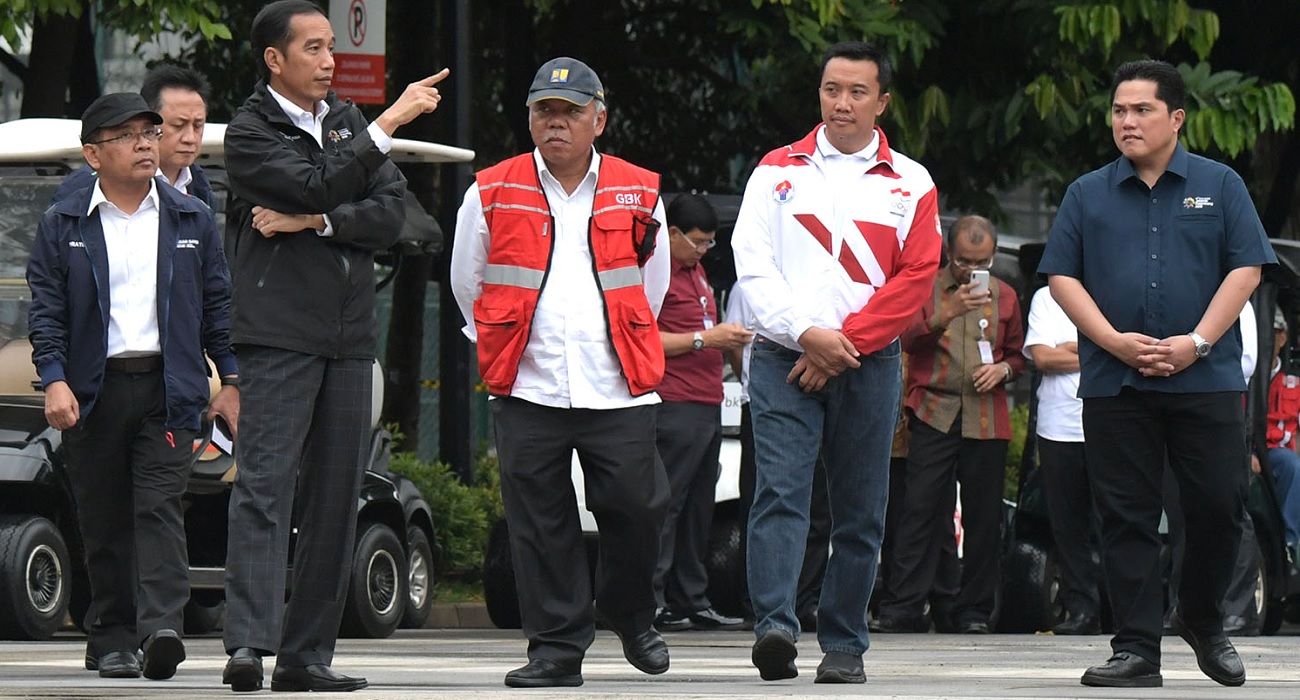
03 Jul Transportation and Asian Games
Photo: President Joko Widodo inspecting Gelora Bung Karno (bagus/kemenpora.go.id)
The Asian Games, one of the largest multi-sport event in the world, will be held in Indonesia on August 18 – September 2, 2018. Jakarta and Palembang are the two main cities where 40 sports will be contested.
The Indonesian government, through the Jabodetabek Transportation Management Agency (BPTJ), has designed a package of transportation policies in Jakarta and surrounding areas to be implemented during the event. It aims to provide easy commuting and accessibility during the competitions.
The policy package consists of three parts, namely traffic engineering management (MRLL), provision of public transport, and traffic restrictions on land freight transport. The main purpose is that the commuting time of the athletes to the venues that is determined by the Games officials can be fulfilled.
The policy of land freight transport traffic restrictions (vehicle categories III, IV and V) is carried out by extending its scope to certain toll roads. Currently, restrictions are made on the Cawang-Tomang-Pluit and Tomang-Kembangan toll roads where freight vehicles are not allowed to pass on the toll road at 10 pm to 5 am.
During the Asian Games, the restrictions will be extended to the Cawang – Tanjung Priok toll road section, the Pelabuhan toll road section, the Cawang – TMII toll road section and the Cawang – Cikunir toll road section.
The drafting of these three policies indirectly clarifies one of Indonesia’s main weaknesses that have been holding back the pace of the nation’s economic growth. Our infrastructure, even in the vicinity of the capital, is not sufficient to provide a comfortable climate for business growth. Traveling from one strategic point to another takes a long time and is always exhausting.
The policy is a temporary effort to solve the problem in the short term. Hopefully, the improvements in transport infrastructure and public transport services that have intensified over the last few years can provide more long-term solutions.



Sorry, the comment form is closed at this time.